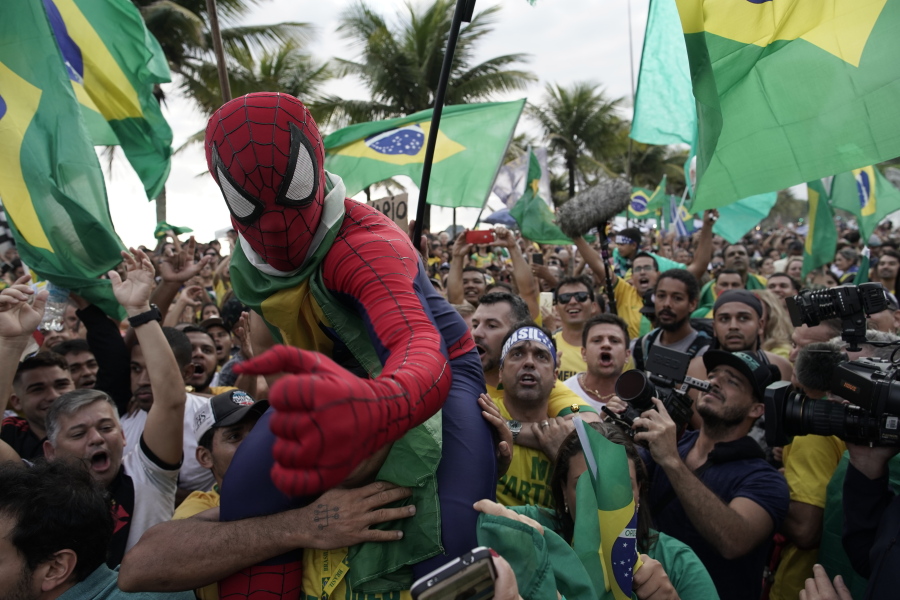SAO PAULO — Far-right congressman Jair Bolsonaro won the presidency of Latin America’s largest nation Sunday as voters looked past warnings that the brash former army captain would erode democracy and embraced a chance for radical change after years of turmoil.
With 97 percent of ballots counted, Brazil’s top electoral court said Bolsonaro had won with 55.4 percent of the votes. His opponent, leftist Fernando Haddad of the Workers’ Party, had 44.4 percent.
In Rio de Janeiro, Bolsonaro’s supporters set off fireworks on iconic Copacabana Beach. In Sao Paulo, Brazil’s largest city, cars horns could be heard honking and crowds celebrated as the results came in. There were also reports of clashes between his backers and opponents on Avenida Paulista in Sao Paulo.
“I first want to thank God,” Bolsonaro told supporters in a video transmitted from his home in Rio, recounting how he was stabbed while campaigning last month and almost died.
Bolsonaro, who ran on promises to clean up Brazil and bring back “traditional values,” said he would respect the constitution and personal liberty. He said that wasn’t just the words of a man but a promise to God.
Bolsonaro went into Sunday the clear front-runner after getting 46 percent of the vote to Haddad’s 29 percent in the first round of the election Oct. 7, which had 13 contenders. After opinion polls in recent weeks had Bolsonaro leading by as much as 18 percentage points, the race had tightened the last few days after several Brazilian heavyweights came out against Bolsonaro, arguing that he was a direct risk to the world’s fourth largest democracy.
Bolsonaro, who cast himself as a political outsider despite a 27-year career in Congress, is the latest of several leaders around the globe to gain prominence by mixing tough, often violent talk with hard-right positions. But he is also very much a product of a perfect storm in Brazil that made his messages less marginalized: widespread anger at the political class amid years of corruption, an economy that has struggled to recover after a punishing recession and a surge in violence.
“I feel in my heart that things will change,” said Sandra Coccato, a 68-year-old small business owner, after she voted for Bolsonaro in Sao Paulo. “Lots of bad people are leaving, and lots of new, good people are entering. There’s a light at the end of the tunnel.”
Bolsonaro rose in prominence amid disgust with Brazil’s political system. In particular, many Brazilians are furious with the Workers’ Party for its role in the graft scheme, known as “Carwash” and Haddad struggled to build momentum with his promises of a return to the boom times by investing in health and education and reducing poverty.
Along the way, Bolsonaro also raised serious concerns that he will usher in a rollback of civil rights and a weakening of institutions in what remains a young democracy, especially since he has waxed nostalgic for Brazil’s 1964-1985 military dictatorship and said he would name military men to his Cabinet.
In a highly unusual moment, the chief justice of the Supreme Court, Jose Dias Toffoli, read out part of the Constitution to reporters after he voted.
“The future president must respect institutions, must respect democracy, the rule of law, the judiciary branch, the national Congress and the legislative branch,” Toffoli said in remarks many took to be a rebuke of Bolsonaro and his more extreme positions.
As late as Sunday morning, Haddad was still holding out hope that he could win after several key endorsements late Saturday.



